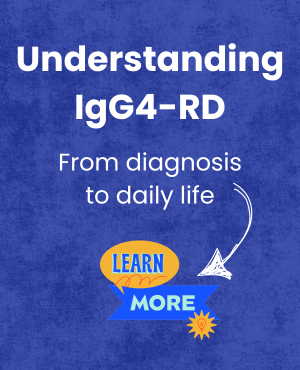Zenas secures up to $300M to advance obexelimab for IgG4-RD
Deal with Royalty Pharma to develop, launch the under-the-skin injectable
Written by |

Zenas Biopharma has secured up to $300 million from Royalty Pharma to accelerate the development of obexelimab, its investigational treatment that could provide much-needed relief for people with immunoglobulin G4-related disease (IgG4-RD).
In exchange, Royalty Pharma will receive a share of royalties on sales of obexelimab, which is being developed for IgG4-RD and other autoimmune diseases.
“This transaction underscores our conviction in the potential of obexelimab as a franchise molecule and provides us with financial flexibility to rapidly advance our clinical programs and fund the commercial launch of obexelimab if approved for the treatment of IgG4-RD,” Lonnie Moulder, founder and CEO of Zenas, said in a joint company press release.
Pablo Legorreta, founder and CEO of Royalty Pharma, said: “We are delighted to partner with Zenas as they develop obexelimab in IgG4-RD and other autoimmune diseases.”
The therapeutic potential of obexelimab
IgG4-RD is marked by abnormal clumps of immune cells, including B-cells, that can form in nearly every tissue in the body. These clumps can lead to tissue scarring, with symptoms depending on the tissue affected.
Obexelimab is an antibody-based therapy designed to reduce the inflammatory activity of B-cells by binding to CD19 and FCGR2B, two proteins that are key for the cells’ activation.
Zenas is developing the therapy as a subcutaneous (under-the-skin) injection for IgG4-RD and other diseases driven by abnormal B-cell activity, including multiple sclerosis and systemic lupus erythematosus (SLE).
A Phase 2 clinical trial (NCT02725476) that tested obexelimab in 15 people with IgG4-RD showed that all but three participants reported a marked reduction in disease severity after about six months.
“There is clear unmet need in IgG4-RD where obexelimab, with its exciting novel B cell modulating mechanism of action, has demonstrated compelling proof-of-concept,” Legorreta said. “IgG4-RD represents a potential blockbuster opportunity for obexelimab.”
Zenas is running a Phase 3 trial called INDIGO (NCT05662241) to test obexelimab in IgG4-RD. The study enrolled nearly 200 adults with active disease who were randomly assigned to receive weekly injections of obexelimab or a placebo for about a year.
The study’s primary goal is to see if obexelimab is better than the placebo at delaying the time to a first IgG4-RD flare, when symptoms suddenly worsen. Results from INDIGO are expected around the end of 2025.
Assuming the findings are positive, Zenas plans to use the trial’s data to ask the U.S. Food and Drug Administration (FDA) to approve obexelimab for IgG4-RD. If the treatment is approved, the company is eyeing a commercial launch in the first half of 2027.
“We are committed to bringing obexelimab to as many patients living with autoimmune diseases as possible and look forward to our upcoming key milestones, including the topline results from our pivotal Phase 3 trial in IgG4-RD expected around year-end,” Moulder said.
The terms of the deal
Under the deal, Royalty Pharma is paying $75 million upfront, with the potential for three more payments of $75 million: one if the INDIGO study meets its primary goal, another if the FDA approves obexelimab for IgG4-RD, and a third if it approves the therapy for SLE.
In exchange, Royalty Pharma will receive a 5.5% royalty on worldwide net sales of obexelimab by Zenas and its affiliates and other payments if the therapy is approved in other countries.
“This agreement builds on an already record year for Royalty Pharma in announced value of synthetic royalty transactions, reflecting the compelling advantages this funding paradigm offers to innovative biotech companies,” Legorreta said. “We look forward to supporting the Zenas team as they advance their broad development program to bring this important new treatment to patients in need.”
Moulder added that Zenas is “very pleased to partner with Royalty Pharma as we rapidly advance our broad obexelimab program through late-stage development and into global commercialization.”







